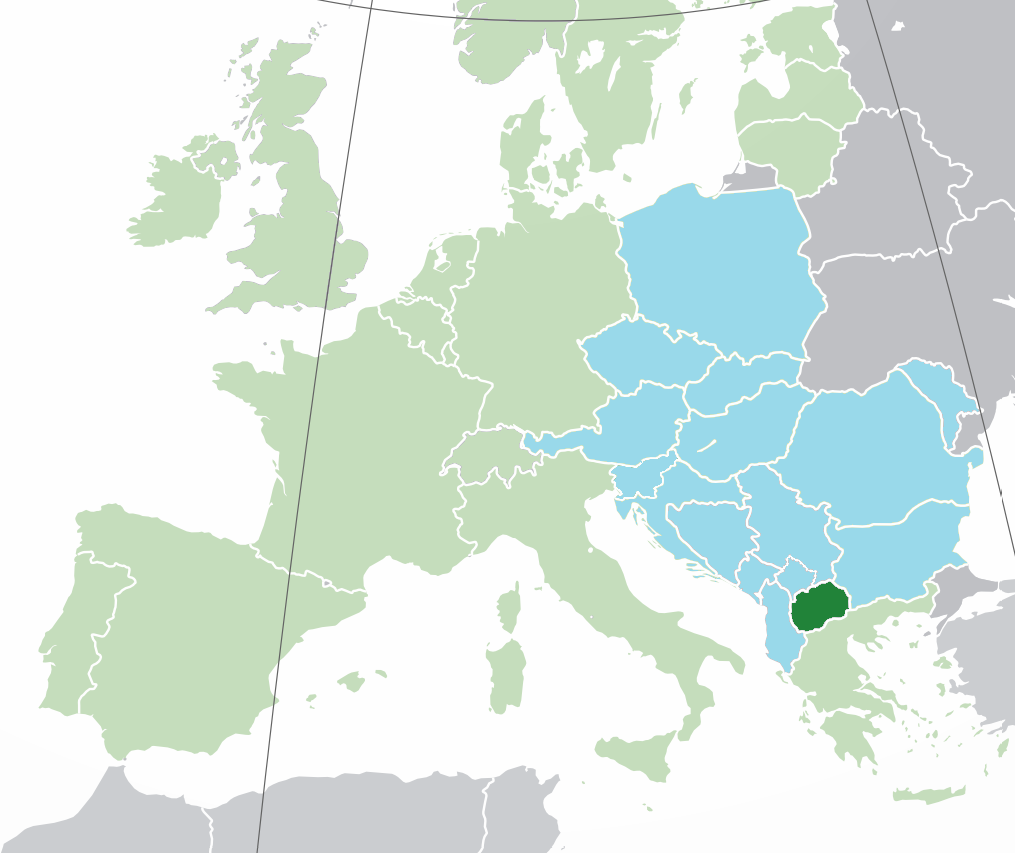North Macedonia

North Macedonia participates with two groups located at (click on the group for further information):
Faculty for Natural Sciences and Mathematics, University “Ss. Cyril and Methodius”, Skopje
Faculty of Technological Sciences, “Mother Teresa” University in Skopje
Institute of Chemistry, being part of Faculty for Natural Sciences and Mathematics, University “Ss. Cyril and Methodius” from Skopje, North Macedonia, participates in the network with two departments.
The group from the Department of Physical Chemistry is active in a number of research fields inherently related to the educational process in physical chemistry and related subjects at undergraduate as well as at graduate level. The research activities of the group cover both theoretical and experimental aspects of fundamental and applied physical chemistry. From experimental side, the group has been active in the field of molecular spectroscopic studies of various systems in condensed phases (both solids and liquids), employing techniques of infrared and Raman spectroscopy. From the theoretical side, the group has contributed to development of various advanced computational methods related to molecular vibrations, including the development of hybrid statistical physics – quantum chemical approaches to computational vibrational spectroscopy of condensed phases. This team has an access to excellent computational resources: it owns several local workstations and has an access to the South-Eastern European Grid (SEE) cluster, a direct access to the Macedonian node within the SEE grid cluster, as well as an access to the HPC cluster at the Faculty of Computer Science and Engineering in Skopje, North Macedonia. Regarding experimental approach, the group possesses a Perkin-Elmer System 2000 Fourier transform infrared interferometer (FTIR) connected to a
Fourier transform infrared microscope (i-series) and upgraded with additional ATR and DRIFT facilities, as well as a polarizer. The group has also recently obtained a micro-Raman spectrometer LabRam 300 (Horiba Jobin-Yvon) with two lasers operating at 532 and 633 nm.
The group from the Department of Inorganic Chemistry (also from the Institute of Chemistry in Skopje) is active in various fields related to materials science and technology of advanced materials, with a special emphasis on nanomaterials and nanoscience. The research activities of the group are closely related to teaching at undergraduate and graduate levels. The group has been involved in development of methods for synthesis of various nanomaterials employing both conventional colloidal chemical and sonochemical approaches, as well as characterization of materials’ properties and an in-depth understanding of the physical background behind the size-dependence of these properties. The group owns a Shimadzu SPM/AFM system and has an access to a Rigaku X-ray diffractometer equipped with high-temperature cell, and a Varian UV-VIS spectrometer. The group has also developed its own home-made facilities for measurement of the electrical and photoelectrical properties of thin layers.
At the Faculty of Technological Sciences, “Mother Teresa” University in Skopje, North Macedonia, the researchers are focused on the preparation of lipid and biodegradable nano-/micro-particles. The design and formulation of nanoparticles are important parts of their research agendas. Functional vesicles such as liposomes play an important role in the controlled delivery of substances that contribute to the aroma of the product. The vesicles are studied with classical methods such as thin-film hydration method, ether injection method, ethanol injection method, reverse-phase evaporation method, detergent removal method and etc. The encapsulation efficiency is determined with an UV/Vis spectrophotometer, while the morphological structure of liposomes is determined with an optical microscope. The homogeneous mixtures are prepared with the use of magnetic stirrer. Other research topics of the group include natural product isolation and natural product chemistry. In these cases, extraction techniques are implemented and the emphasis is on adaptation of the conditions for the reaction system in order to obtain greater yield of the process. TLC method is used for the qualitative analysis.
